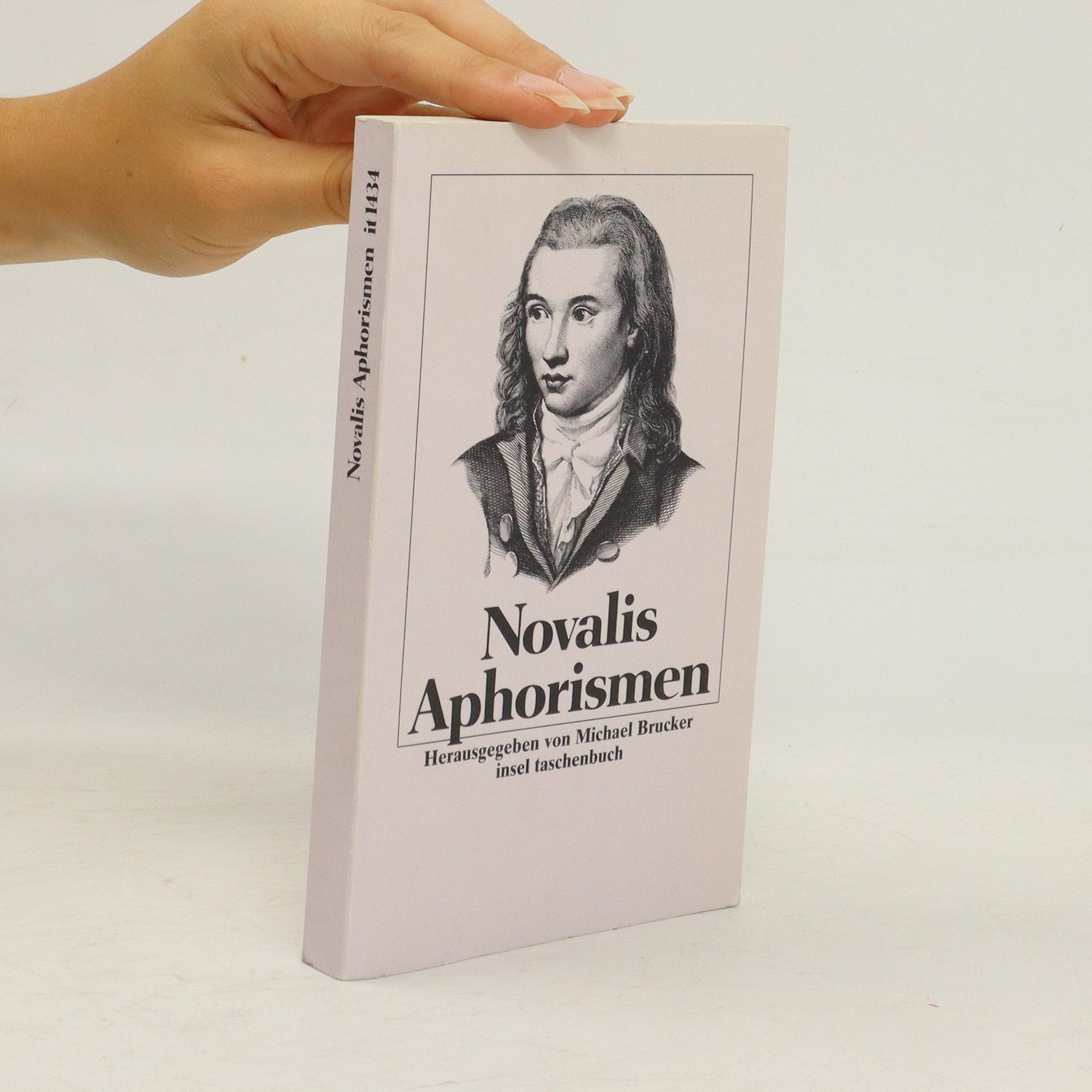Exploring themes of love, death, and transcendence, this collection of lyrical poetry delves into the profound connection between the human soul and the divine. The author, Novalis, employs rich imagery and philosophical reflections to express his yearning for spiritual enlightenment and the mysteries of existence. Each hymn serves as a meditation on the beauty and pain of life, inviting readers to contemplate their own experiences and the eternal nature of the night.
Novalis Libros
Novalis, seudónimo de Georg Philipp Friedrich Freiherr von Hardenberg, fue una figura central del primer romanticismo alemán. Su poesía y escritos filosóficos se caracterizan por una profunda introspección y la exploración de temas espirituales y místicos. Las obras de Novalis profundizan en la esencia del ideal romántico, examinando la relación entre los sueños y la realidad, la naturaleza y el alma humana. Su influencia resonó a través de generaciones, moldeando el pensamiento de autores como Hermann Hesse e impactando indirectamente a todo el género de la fantasía moderna.






The Disciples At Sais
- 92 páginas
- 4 horas de lectura
The novella explores mystical themes through the journey of disciples seeking knowledge at the ancient city of Sais. Accompanying this work is the enchanting fairy tale "The Story of Hyacinth and Roseblossom," showcasing Novalis's unique blend of Romanticism and mysticism. Renowned for his deep philosophical insights and lyrical beauty, Novalis is a pivotal figure in German literature. This edition also features an introduction, bibliography, and notes, enhancing the reader's understanding of his contributions to Romantic poetry.
HYMNS TO THE NIGHT IN TRANSLATION
- 132 páginas
- 5 horas de lectura
Exploring the intersection of philosophy and poetry, this work delves into the life and thoughts of Novalis, a key figure in German Romanticism. It highlights his belief in the transformative power of love and nature, as well as his quest for spiritual enlightenment. The narrative intertwines personal experiences with broader existential themes, showcasing Novalis's innovative use of language and metaphor. His writings reflect a deep yearning for unity and transcendence, making this a compelling study for those interested in Romantic literature and philosophy.
Exploring the intersection of philosophy and poetry, this work delves into the life and thoughts of Novalis, a pivotal figure in German Romanticism. It highlights his profound belief in the transformative power of love and nature, as well as his quest for spiritual enlightenment. The text examines his unique approach to metaphysics and the interplay between the ideal and the real, showcasing how his writings continue to resonate with contemporary themes of longing and the search for meaning.
Exploring the life and philosophy of Novalis, this work delves into the German poet and philosopher's contributions to Romanticism. It highlights his unique blend of mysticism and idealism, showcasing how his thoughts on nature, love, and the human spirit influenced literature and philosophy. The text also examines his seminal works, revealing the depth of his vision and the enduring impact of his ideas on subsequent generations. Through a comprehensive analysis, readers gain insight into Novalis's quest for meaning and the poetic transcendence he sought.
Exploring the themes of romanticism and transcendentalism, this work delves into the philosophical musings of Novalis, a key figure in German literature. The text intertwines poetry and prose, reflecting on the nature of love, nature, and the spiritual journey of the soul. Novalis's unique style blends mysticism with a longing for the ideal, inviting readers to contemplate the deeper meanings of existence and the interconnectedness of all things. His influence on later literary movements is also highlighted, showcasing his lasting legacy.
Svazek Květinový prach přináší vrcholnou básnickou tvorbu jednoho z nejvýznamnějších německých romantiků soustředěnou ve sbírce Hymny k noci a výbor z prozaických Fragmentů. Básně o dívce a jejích trampotách, básně představ o milované ženě, básně inspirované láskou a smrtí básníkovy snoubenky, také básně všímající si horníkovy práce. Úryvky z „Fragmentů“ – autorových filosofických sentencí, fragmentárně vyjadřovaných: Vidíš-li obra, zkoumej nejprve polohu slunce a dej pozor, není-li to stín trpaslíka. – Dívka, která není opravdové dítě, není už panna.
Novalis war ein deutscher Schriftsteller der Fruhromantik. Reproduktion des Originals in neuer Rechtschreibung.
Zázračná hra světa. Úvahy a fragmenty
- 258 páginas
- 10 horas de lectura
Fragment neznamená v německé rané romantice, zejména u Friedricha Schlegela a Novalise, pouze něco nedokončeného či neúplného, "zlomek" v běžném slova smyslu, nýbrž vědomě pěstovaný literárně filozofický žánr, který usiluje o vyhrocenou, v podstatě experimentální formulaci jedné myšlenky nebo zážitku, o formulaci neomezenou kontextem hotového systému. Fragment je výrazem myšlení, které se přiznává ke své neuzavřenosti a kontinuálnosti, je to forma literárního mládí, které nechce jít vyšlapanými cestami a na každém kroku, zcela elementárně, si ověřuje, zda by nebylo možné vydat se i jiným směrem. Novalis se vyrovnává s myšlenkovými systémy svých předchůdců i současníků - Goetha, Fichta, Hemsterhuise aj. - nikoli jako s celky, ale tak, že prověřuje nosnost jejich jednotlivých článků, jež samostatně domýšlí a variuje. Při vší různosti témat a náhodnosti podnětů - reaguje na problémy z oblasti filozofie, historie, politiky, ale velmi často i přírodních věd - je za jeho soubory fragmentů nepřehlédnutelný jednotící prvek: snaha dobrat se souvislosti všeho se vším, dospět k jistému univerzálnímu názoru. V tomto smyslu nejsou Novalisovy fragmenty a reflexe jen nazávaznými náčrtky nebo přípravným materiálem vlastní básnické tvorby, nýbrž její integrální součástí a svébytnou literární hodnotou.



